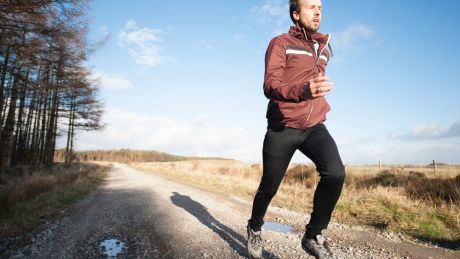Running Won’t Wreck Your Knees, Being Overweight Will
Doesn’t make any sense, right? Read on, it will

It’s an accepted fact that running regularly on hard surfaces puts undue pressure on your knees – so much so that the associated injury, patellofemoral pain syndrome, is more commonly known as runner’s knee.
However, a chapter in new book Running Science, edited by leading sports scientist Professor John Brewer, not only takes issue with the idea that running makes all knee injuries more common but suggests that the opposite might be true.
Written by physiotherapist Anna Barnsley, the chapter cites a study of 2,637 people undertaken by Baylor College of Medicine in the US. This found that 22.8% of those who had been runners demonstrated signs of knee osteoarthritis, compared with 29.8% of non-runners, indicating that people who ran regularly (or had done so in the past) were less likely to have frequent knee pain than non-runners.
It’s not wrong to state that running puts extra stress on the lower body – each step taken puts eight times your bodyweight on each leg. That’s three times as much stress as walking. However, as you take longer strides when running there is less time spent in contact with the ground than when walking, so the overall pressure on the legs is similar.
This is not the only research to find that running is unlikely to wreck your knees. A study in 2013 looked at nearly 75,000 runners and nearly 15,000 walkers and found that the runners were around half as likely to develop arthritis. This research also found that the greater the weekly mileage of the runner, the lower their risk of arthritis.
The results of this research is less surprising when you consider that the single biggest risk factor for knee osteoarthritis is obesity. Any potential risk running poses to your knees is counterbalanced by the weight lost when exercising regularly.
All this is good news for runners, but it doesn’t mean you shouldn’t consider the pressure you’re putting your body though when running, or indeed when undertaking any exercise. It’s important to wear the right shoes when running and increase the amount you do gradually.
Get the Coach Newsletter
Sign up for workout ideas, training advice, reviews of the latest gear and more.
RECOMMENDED: The Best Running Shoes
And if you have any knocks or niggles it’s vital to ensure they heal properly. If you do have significant knee pain, no-one is suggesting that running more is going to heal it.

Nick Harris-Fry is a journalist who has been covering health and fitness since 2015. Nick is an avid runner, covering 70-110km a week, which gives him ample opportunity to test a wide range of running shoes and running gear. He is also the chief tester for fitness trackers and running watches, treadmills and exercise bikes, and workout headphones.
